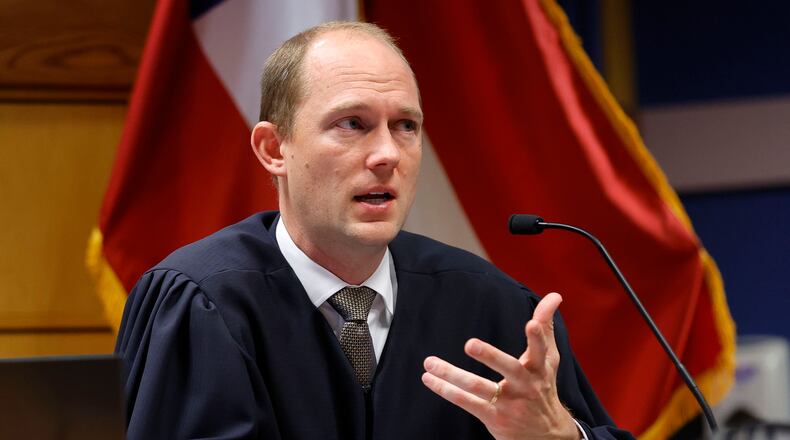The Georgia Court of Appeals decision to consider whether District Attorney Fani Willis should remain at the helm of Fulton County’s election interference prosecution of Donald Trump and his allies casts uncertainty on the case’s future, especially its timetable.
Here is what to know about what comes next:
Court Calendar: The decision means, in a word, delay. Fulton Superior Court must prepare the record from the first round of the removal fight earlier this year and send it to the appeals court. The case is then docketed and a panel of three judges is randomly assigned via the court’s computer system, according to Christina Cooley Smith, deputy court administrator for the Court of Appeals.
Those judges will schedule oral arguments. The matter must be decided within two terms of court. If it’s docketed before July, that means it would need to be heard and decided before mid-March 2025. The appeals court decision to hear the case virtually guarantees the Fulton County case will not go to trial before Election Day.
What happens in Fulton County?: When he gave defense lawyers permission to appeal his decision, Fulton Superior Court Judge Scott McAfee said he would continue working on the case, doing things like resolving pending motions. But Trump or his co-defendants could seek a stay barring McAfee from moving forward with his work on the case until the appeal is resolved.
What about other issues creating delay?: In addition to the removal appeal, there are also questions about whether Trump has presidential immunity that could shield him from facing criminal charges. The U.S. Supreme Court heard arguments on the issue in April and is expected to deliver an opinion by the end of June. Trump’s legal team has raised the question of immunity in the Georgia case and the high court’s decision will have implications about how the case moves forward.
About the Author






